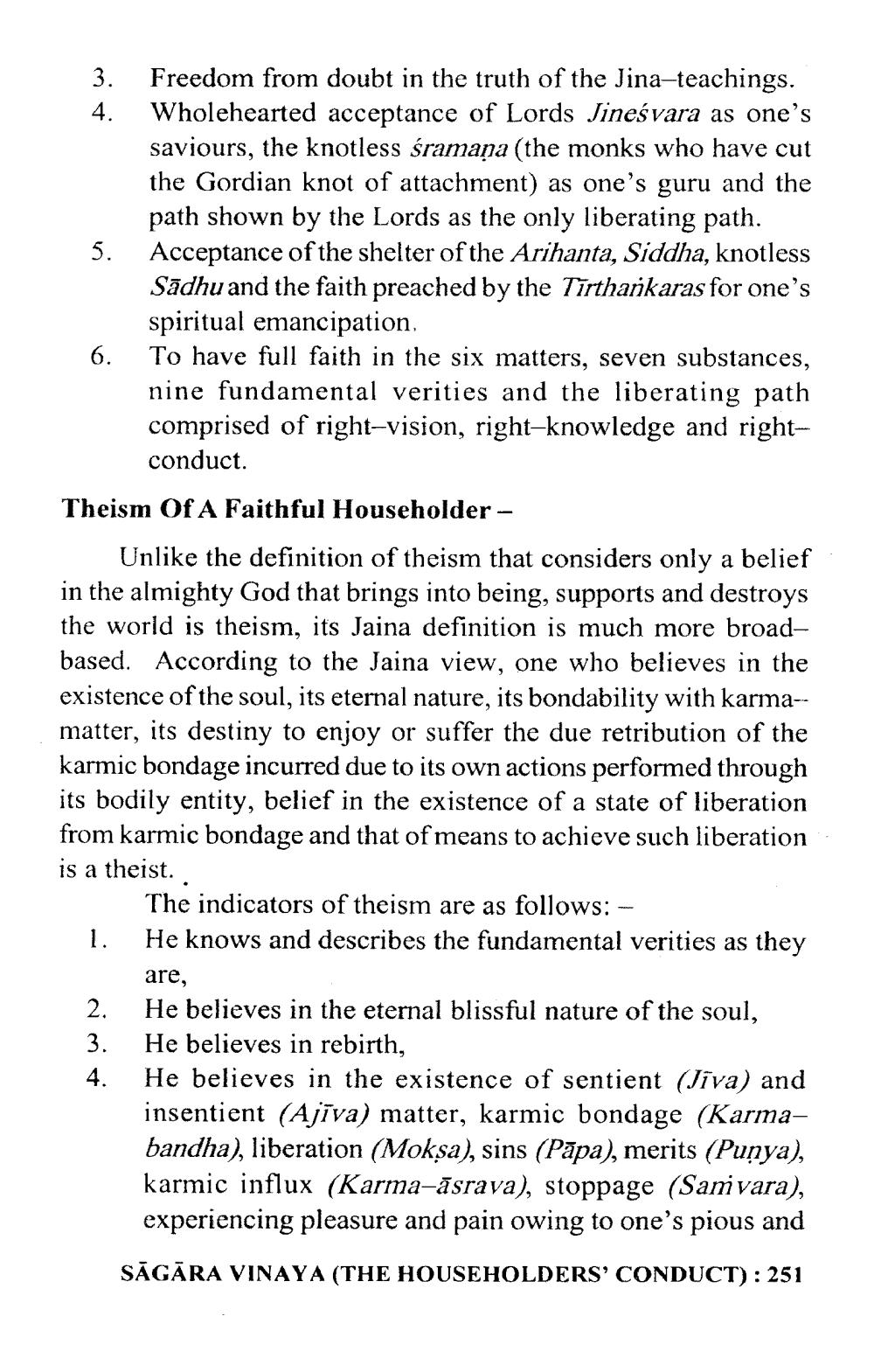________________
3. Freedom from doubt in the truth of the Jina-teachings. 4. Wholehearted acceptance of Lords Jinesvara as one's saviours, the knotless śramaņa (the monks who have cut the Gordian knot of attachment) as one's guru and the path shown by the Lords as the only liberating path. Acceptance of the shelter of the Arihanta, Siddha, knotless Sadhu and the faith preached by the Tīrthankaras for one's spiritual emancipation.
To have full faith in the six matters, seven substances, nine fundamental verities and the liberating path comprised of right-vision, right-knowledge and rightconduct.
5.
6.
Theism Of A Faithful Householder -
Unlike the definition of theism that considers only a belief in the almighty God that brings into being, supports and destroys the world is theism, its Jaina definition is much more broadbased. According to the Jaina view, one who believes in the existence of the soul, its eternal nature, its bondability with karma-matter, its destiny to enjoy or suffer the due retribution of the karmic bondage incurred due to its own actions performed through its bodily entity, belief in the existence of a state of liberation from karmic bondage and that of means to achieve such liberation is a theist..
The indicators of theism are as follows: -
He knows and describes the fundamental verities as they
1.
are,
He believes in the eternal blissful nature of the soul, He believes in rebirth,
4. He believes in the existence of sentient (Jīva) and insentient (Ajīva) matter, karmic bondage (Karmabandha), liberation (Moksa), sins (Papa), merits (Punya), karmic influx (Karma-āsrava), stoppage (Samvara), experiencing pleasure and pain owing to one's pious and SĀGĀRA VINAYA (THE HOUSEHOLDERS' CONDUCT): 251
2.
3.




